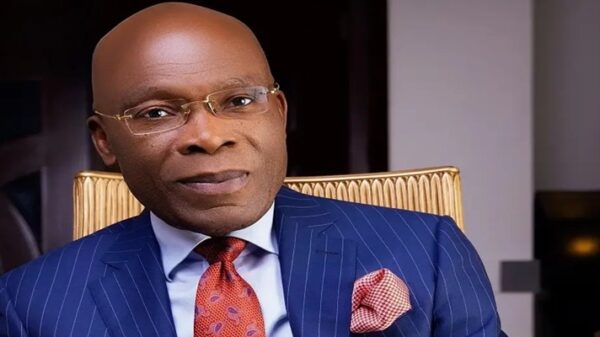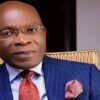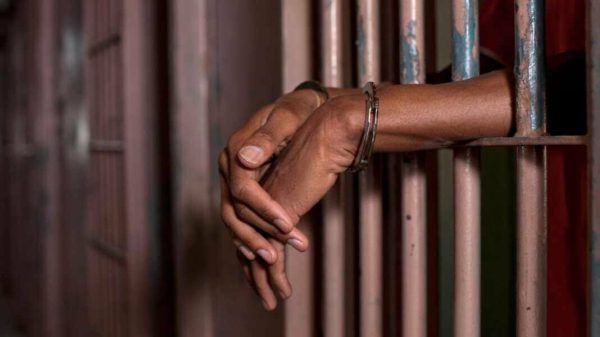The French government has agreed to work with the federal government to develop the country’s inland dry ports.
Mr. Hassan Bello, executive secretary / general manager of the Nigerian Shippers Council (NSC), revealed this during a collaboration meeting between the duo and the investor delegation on Thursday in Abuja.
The Nigeria News Agency (NAN) reports that the objective of the meeting was the development of inland dry ports, rail transport infrastructure, promotion of exports and imports and development between the two countries.
Bello explained that after an in-depth study, five sites were chosen by the federal government for the construction of a dry port, namely Funtua, Kano, Ibadan, Plateau and Isiala Ngwa in Abia.
According to him, the dry port of Funtua is already 68% complete and, thanks to the efforts of the Nigerian Railway Corporation (NRC), it may be ready for operation in October or November.
He noted that reasonable progress had also been made in other ports, adding that the crucial issue was that projects were handed over to the private sector.
“The federal government believes that in order to bring shipping closer to people, there should be ports.
“The policy guidelines are that the dry port will decongest the seaport, it will make it easier for everyone, second, we need to galvanize exports.
“Nigeria cannot be an import dependent country for a long time, we have to export to earn all the foreign exchange. The dry port is expected to be centered for export.
“In this case, we will bring standards. Pre-export inspectors so that once you export it’s certified, everything is sealed and transported by rail mainly to the waiting vessel and off you go.
“What it does is you expand the economy and give exporters access to ports. We ask the government to declare the dry port as an export center so that everything is there.
“There will also be free zones, so most of the taxes will be reduced. We want to make these ports very complete, we have to add value, we have to have the compliment of the cold room to really address these post harvest losses.
“The most important thing is that we need to improve and open the ports to local and international investment,” Bello said.
On railways, the head of the NSC said rail capacity was the key to the success of dry ports, adding that to gain investor confidence we should have provided rail services.
He noted that some countries had indicated that they wanted to invest and therefore it was important to get it right.
According to him, the idea is not only to have a port, but to have a modern / electronic port compliant and compliant with the ISPS code and the international standard.
He thanked the Director General of NRC, Fidet Okhiria, for agreeing to guarantee the availability of land for investors in order to create additional value.
He urged him, however, to undertake a critical independent review of all ports and submit it to the federal government so that rail is not a cause of port delay.
He also demanded that ports not be allowed to be congested like the ports of Apapa, that goods be cleared 24 hours a day, that there be no demurrage or rent seeking and that the ports must be linked to the economy and to the community.
Representing the French government, its regional agricultural advisor, Dr Sonia Darracq, expressed his government’s willingness to collaborate with Nigeria.
While reiterating the importance of the dry port, Darracq said it will strengthen the country’s agricultural sector, among other things, as it will reduce post-harvest losses of food.
“I am in contact with certain French companies which will be interested in a partnership in the development of the dry port, whether for food or other things.
“And I brought documentation for companies that also cover the cold chain sector and they will be very willing to learn more about your policy on the development of dry ports in order to study avenues for cooperation.
“I am here to better understand what the government and the private sector are planning to develop in the dry port sector and all other infrastructure.
“I am especially concerned about the transport of our foodstuffs but I also really want to know the strategy of development of the motorway, the roads.
“I came here specifically at the request of the French number one in the cold chain. This is a group of French companies that has been involved in the cold chain for more than 50 years.
“They have extensive experience, they are private companies and are very willing to enter into business discussions with you.
“I am a government person and the French government is very willing to help in the form of some financial tools that we can activate for the start.
“We want to participate in the transformation of all or part of the environmentally friendly energy sources for all activities, including cold chain transport and everything.
“For this, we can easily activate not only French financial aid but also the European Union.
“I will write a report that I will share with my ambassador but also with the representatives of the EU here because I think it is for us, a golden opportunity to work together and to be part of this development which is essential for the country, ”he added. she added.
The Director General of NRC, in his remarks, reiterated the importance of rail in industrialization and development.
Okhiria reiterated the efforts of President Muhammadu Buhari‘s administration to connect the country by rail, saying that work is underway to revitalize / build narrow gauge and standard lines in the country.
He said: “The federal government has taken the bull by the horns to develop infrastructure and the dry ports now have rail lines to move the products.
“If we are successful in connecting the rails, we will not only reduce congestion, but encourage people to use other ports and stimulate the economy in the long run.”
“I pray that the government continues to have the will to develop the sector because it is not a cheap project.”
![]()






























































